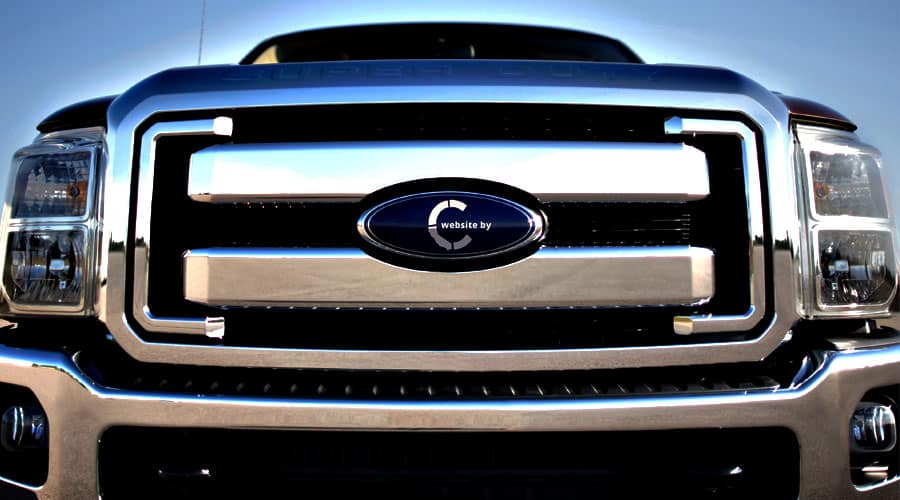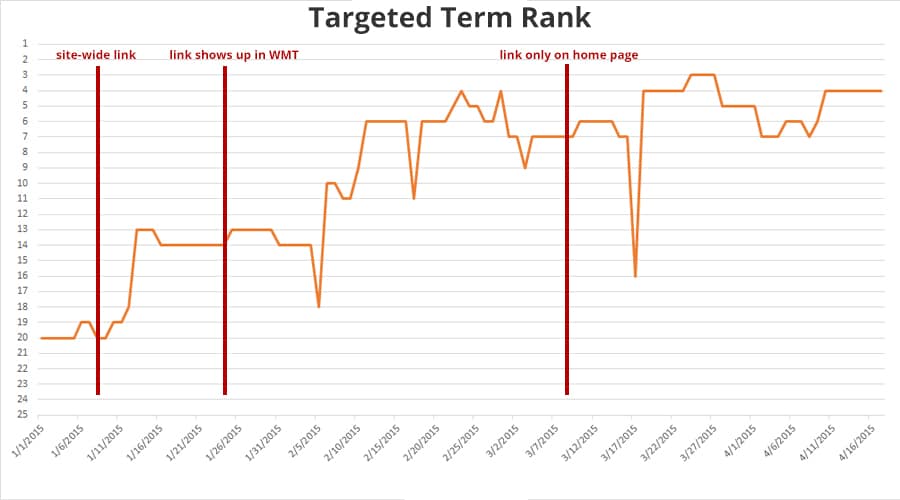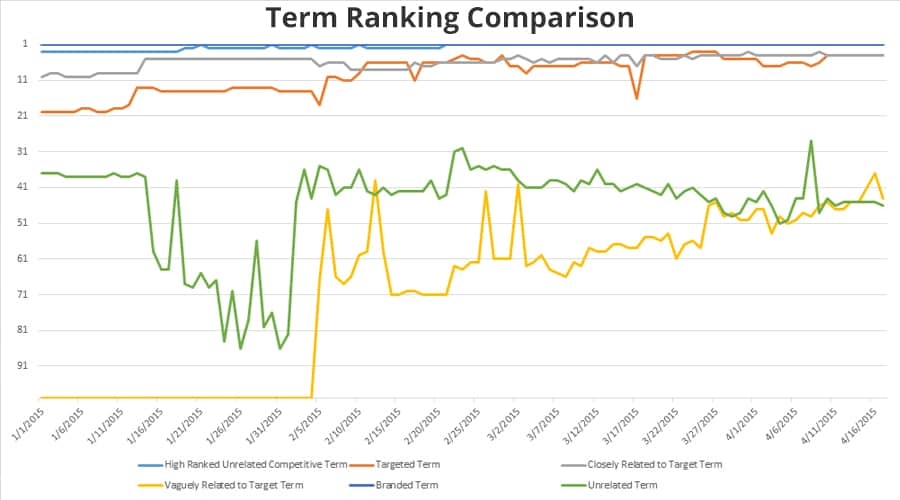Site-Wide Footer Links: How Do They Affect Search Rankings?
There's been some dispute as to the SEO effects resulting from adding site-wide footer links. So, we put it to the test.
Get a Free Marketing Analysis and Consultation
Nowspeed can review your Website, SEO, PPC, Email or Social Media Campaigns and identify ways to make an immediate impact!
As an SEO professional, life can be tough. Due to Google’s policy of not publishing their search algorithms, a large part of what we do is based on speculation and experimentation. That’s not to say we go off and do things willy-nilly; there’s a science to what we do and the best of us get great results. However, the amount of misinformation out there is daunting, and it’s tough to tell truth from fiction when we’re reading about the importance of PageRank and directory submissions and other issues, all constantly argued about by “experts,” web marketers, and overseas SEO companies trying to make a sale. But what if it’s coming straight from the horse’s mouth?
Back in 2014, Google’s John Mueller (the guy that communicates with webmasters these days) said that you should put a “nofollow” tag on any site-wide footer links, if you have them at all. Google’s stance is that they’re unnatural (read: black hat) and you shouldn’t have them, but if you insist on having them, you should use a “nofollow” tag to avoid being penalized by Google.
Everybody wants credit for something they create – artists sign their paintings, car manufacturers slap their logo all over the vehicle, etc. Why can’t web developers get credit for their work?

Everybody wants credit for something they create – artists sign their paintings, car manufacturers slap their logo all over the vehicle, etc. Why can’t web developers get credit for their work?
As a website developer, I think it’s unfair to ask us not to brand our product. Look around you – everything you’ve purchased has the manufacturer’s logo on it. Sometimes, it’s discreet like the company name imprinted on the bottom of your coffee mug, and other times it’s overt, like the fifteen instances of your car manufacturer’s logo. Why is it different for web developers or SEO companies? Well, in Google’s opinion, anything that can be exploited to unnaturally benefit a website’s rank is going to be discredited so nobody can “game” the system. In fact, quite a number of things, such as site-wide footer links, can draw attention and cause a penalty, according to them.
So, I put it to the test. Are site-wide footer links going to cause a penalty?
A little background on this experiment: Running an SEO experiment is extremely difficult. There are so many variables changing at any given time, such as new links being built, social media, algorithm changes, etc. So this experiment can be thrown out as “dirty” in a scientific setting, but I did my best to make it as “clean” as possible.
- We ran this test using two sites that conform to all of Google’s webmaster guidelines (white-hat sites)
- We chose only one specific keyword to optimize which pointed to the home page of the target site
- We monitored keywords that were similar, as well as completely unrelated keywords that still used the home page as a landing page in Google’s ranks
- We didn’t risk an active client’s ranks during this experiment – we would never misuse clients’ sites for our own benefit
- There were no algorithm updates released by Google during the time of the experiment – in fact, we had to cut it shorter than we had hoped due to the mobile update coming out
- We tried to allow enough time in between steps to make sure that the results we received were only due to the footer links – it was about as clean as we could keep it without running it on completely stagnant sites – we wanted to see the effect on a real site, not one that isn’t “living and breathing”
- Both sites used in this experiment were ranked in the upper 40s according to Ahrefs.com metrics – most business sites rank between 30-50.
- The targeted term was a fairly competitive local term – but one that wouldn’t have much risk in trending in news – receiving 590 monthly searches according to Google Ads
The Experiment – Footer Links and Ranks
The first step of the experiment was to place a site-wide footer link from one site to the other, using our targeted term as anchor text, and pointing to the targeted site’s home page. The landing page was already optimized for the target term: using it in an H1 tag, variations in H2 tags, having a related image with alt tags containing the target term, etc. About as well-optimized as you can get while still being natural and useful for the users.
After a time, we then removed all instances of the footer link from interior pages, and left it on the home page only, and continued to monitor it. We had hoped to take the next step of making it a “nofollow” link, but we ran out of time before a major algorithm update by Google was released, thus making it impossible to accurately track for now.

After removing the link from everywhere but the home page, we were scared when the rank dropped down to 16, but the next day it began its climb to 3-4, and has settled in around 4 as of today. Presumably, those last few spots in the top 10 are more difficult to achieve, as you’re competing with very well-built and popular sites.
Other Terms Tracked
We also tracked a number of other terms that showed up with the same page as their landing page in the SERPs. Some variations of the targeted term, some completely unrelated. Here’s the breakdown of their performance (just selected examples shown for a clean chart, but the trends held through all terms):

Summary – Do Site-Wide Footer Links Help or Hurt?
If I were to summarize, I’d say that a site-wide footer link CAN and DOES help you rank a site, but is weighted a little bit compared to a singular link on the home page of the same site (interior pages probably won’t be as strong). Perhaps there’s a certain number in Google’s algorithm that says if X number of links are created to a site in a short amount of time, they are devalued. Or, perhaps the home page link has positive value, but all subsequent links have a slight negative value. Either way, the results are the same – footer links can help rank terms.
It’s important to note that I’d assume that sites that are suffering from Penguin due to bad link practices won’t have much benefit from something like this. If you already have tons of unnatural link practices, odds are you’re not going to see a benefit from a site-wide footer link.
So, if you’re a web developer who’s afraid to take credit for your work, don’t fret. If you want to be absolutely safe, and don’t need the SEO benefit, go ahead and add a “nofollow” tag to the link.
But, part of branding is a healthy awareness of who created your products, and I don’t think we should be penalized for that. That doesn’t mean that you should go creating a number of sites with footer links pointing to you – private blog networks are a completely separate issue. But, if your client is okay with your name on their site (it’s polite to ask), go ahead and go for it.
So let's
talk.
We're always excited to dig into the details of your company and what strategy can help you meet your goals. So let's talk and lay out a plan for success!